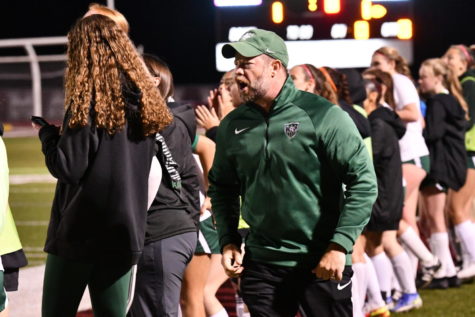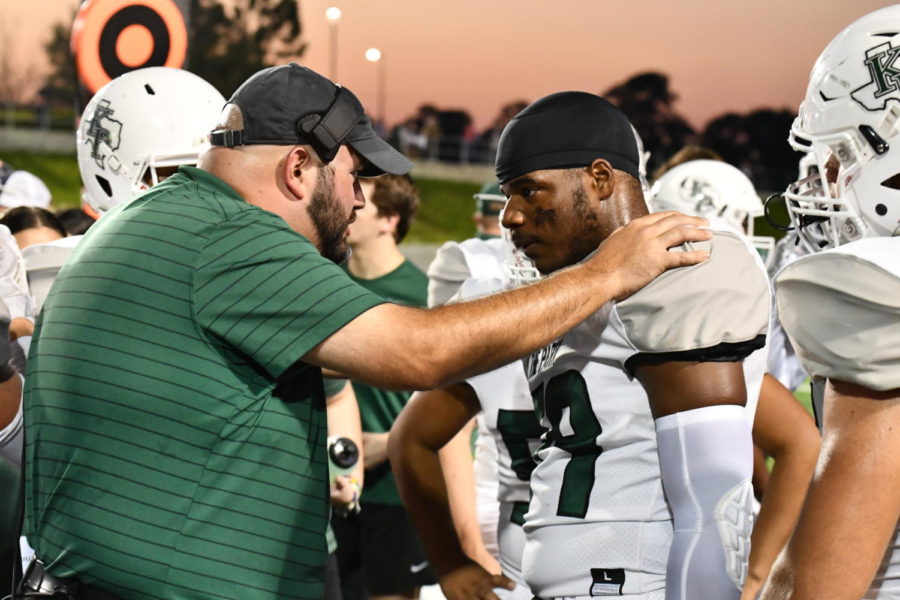Ultimate Balancing Act
Coaches work to juggle teaching, coaching and parenting
Coach Sean Bright talks with sophomore Bradlea Bonton during a football game against Porter on Sept. 9.
December 26, 2022
Coaches deal with chaotic schedules before and during each season.
While teaching and coaching can be closely related, there’s a very different mindset when you’re doing both: namely, the multi-tasking mindset.

Coach Jess White teaches AP and on-level government as well as world history. In addition, he’s the head coach for girls soccer and has been coaching for 23 years. Juggling coaching and teaching can be a challenge.
“It’s difficult because I’m competitive,” said White, who has helped lead the girls to the playoffs 12 times in the last 12 years. “But, I can’t be neglecting a full classroom of kids. That’s what, 120 students?”
Sociology teacher Sean Bright worked on an assembly line before becoming a teacher. He eventually picked up coaching duties, which now include football and track.
“I started teaching first,” Bright said. “I try my best to be a good teacher.”
He also tries to be a good dad. Bright spends roughly 12 hours a day at the school and 17 hours on game days. So, home life can be difficult to keep in balance when so much of his time is spent on his job.
“Last year my wife was out of the country, and having a little one at home and my wife gone for six months was tough,” Bright said. “We spend more time with our athletes than our own families.”
White also said it’s easy to miss out on your own life. Around 2005, he was working more than he was seeing his young son and wife.
“We had only one child at the time, but I missed three years of his life,” White said.
Bright and White said they can relate with and understand students who struggle balancing extra-curriculars on top of their own schoolwork. In their classes they work with students when it comes to deadlines and late work, trying to help those who are overworked and stressed.
English IV teacher Lanie Brittain, who coaches volleyball and basketball, says she was one of those students herself. As a teacher, she organizes her classes to compensate for these schedules as best as she can.
“I have a pretty fair understanding, since it’s something I’ve always related to,” said Brittain, whose husband is also a teacher and coach on campus.
Coaches agree there is a lot of stress involved in what they do. It infringes on their own personal lives along with occupying almost all of their work schedule.
“Is there a home life for coaches?” Brittain said.








